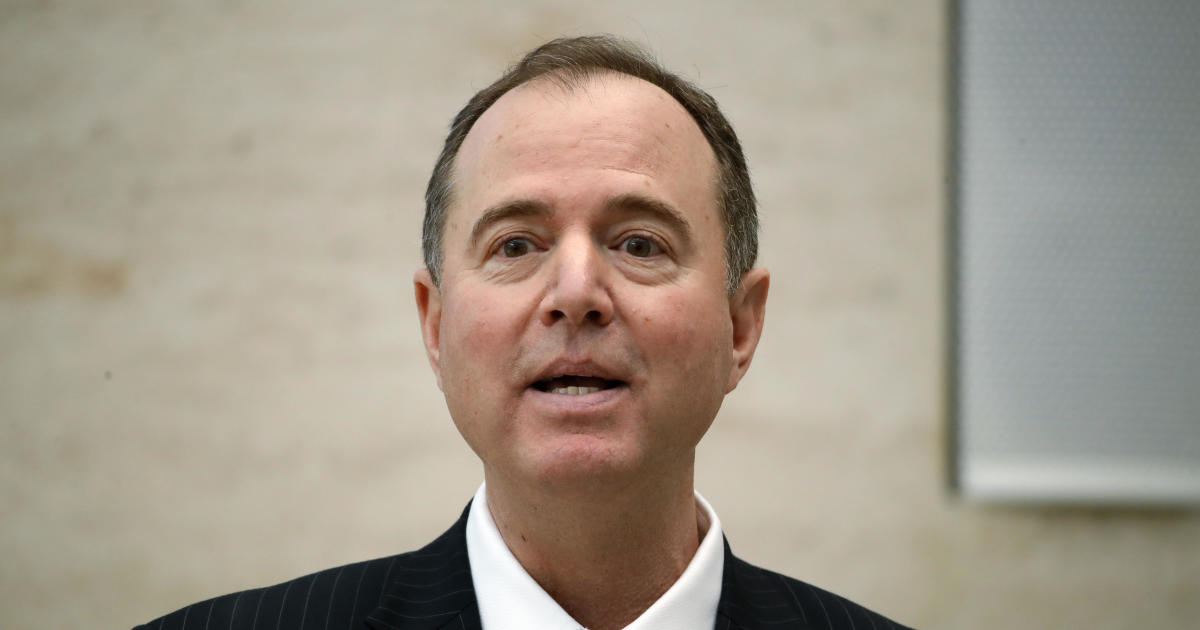
WASHINGTON — The 10-page Democratic memo intended to counter the GOP memo related to surveillance of a former Trump campaign official has been released, with some redactions. The release comes after President Trump had decided earlier not to declassify the 10-page memo, claiming there were concerns over sources and methods the memo could reveal. Mr. Trump already declassified the GOP memo for release three weeks ago.
The GOP memo alleges the Justice Department and FBI acquired and executed surveillance warrants for former Trump campaign aide Carter Page, in part by allegedly using the dossier of unverified information about Mr. Trump’s interactions with Russians. The Democratic memo argues the FBI and DOJ were entirely justified, and relied on much more information than just the dossier crafted by former British intelligence officer Christopher Steele. Republicans and Democrats seem to disagree on how key a role the Steele dossier played.
“FBI and DOJ officials did not ‘abuse’ the Foreign Intelligence Surveillance Act (FISA) process, omit material information, nor subvert this vital tool to spy on the Trump campaign,” the Democratic memo argues. “In fact, DOJ and the FBI would have been remiss in their duty to protect the country had they not sought a FISA warrant and repeated renewals to conduct temporary surveillance of Carter Page, someone the FBI assessed to be an agent of the Russian government. DOJ met the rigor, transparency, and evidentiary basis needed to meet FISA’s probable cause requirement…”
Read the full memo text below or download the full memo as a PDF here:
Here are highlighted claims from the memo:
- The DOJ’s initial FISA application and three subsequent renewals had a “multi-pronged” rationale for surveilling Page; they cited multiple sources and made “only narrow use of information from Steele’s sources about Page’s specific activities in 2016.” The memo says the application did NOT rely on any “salacious” allegations from the dossier about Trump.
- It makes clear FBI started its counterintelligence investigation on July 16, 2016, weeks before it received Steele’s intelligence. The memo insists Steele’s reporting played “no role” in launching the FBI’s investigation.
- The memo notes that, by the time it received Steele’s reporting, DOJ had “already opened subinquiries” into some number of individuals linked to the Trump campaign, apart from Carter Page (the number of subinquiries and individuals is redacted).
- The memo stresses DOJ applied for a surveillance warrant on Page after he ended his formal affiliation with the campaign, and that it had an independent basis for doing so – namely, his various connections to the Russian government and intelligence officials since 2013. The memo says DOJ provided “additional information obtained through multiple independent sources that corroborated Steele’s reporting” – that information is largely redacted in the memo.
- The Court-approved surveillance of Page “allowed FBI to collect valuable intelligence,” as demonstrated by the FISA renewals
- DOJ, in keeping with a practice not to “unmask” U.S. persons, nonetheless “provided the Court with more than sufficient information to understand the political context of Steele’s research,” it says.
- DOJ informed the court that the FBI “acted promply to terminate Steele after learning from him…that he had discussed his work with a media outlet in late October.”
- Steele “ultimately never received payment from the FBI for any “dossier”-related information.”
Both Republicans and Democrats seemed to think the newly released memo bolsters their own previously held positions. Mr. Trump called the memo a “total political and legal BUST” on Twitter.
In a statement, House Intelligence Committee ranking member Rep. Adam Schiff, D-Calif., said his memo shows Republicans “deliberately omitted” information in their memo. Schiff had been pushing for the release of the Democratic memo for weeks.
“The FBI supplied information to the Foreign Intelligence Surveillance Court that Russia might be colluding with Trump campaign associates,” Schiff said in a statement. “DOJ provided the court with a comprehensive explanation of Russia’s election interference including evidence that Russia courted another Trump foreign policy advisor, George Papadopoulos, and that Russian agents previewed their dissemination of information damaging to Hillary Clinton. Russian assistance would, as we would learn in the Papadopoulos plea, take the form of the anonymous disclosure of thousands of Hillary Clinton and DNC emails. The FBI had ample reason to believe that Carter Page was acting as an agent of a foreign power based on his history, including the fact that he had previously been a target of Russian recruitment, his travel to Russia, and other information.”
House Intelligence Committee Chairman Devin Nunes, R-Calif., seemed to think the Democratic memo proves his initial points.
“The American people now clearly understand that the FBI used political dirt paid for by the Democratic Party to spy on an American citizen from the Republican Party,” Nunes said in a statement. “Furthermore, the FISA court was misled about Mr. Page’s past interactions with the FBI in which he helped build a case against Russian operatives in America who were brought to justice. It defies belief that the Department of Justice and FBI failed to provide information to a secret court that they had provided to an open federal court regarding their past interactions with Mr. Page. “
White House press secretary Sarah Sanders called the Democratic memo, “politically driven.”
“While the Democrats’ memorandum attempts to undercut the president politically, the president supported its release in the interest of transparency,” Sanders said. “Nevertheless, this politically driven document fails to answer serious concerns raised by the Majority’s memorandum about the use of partisan opposition research from one candidate, loaded with uncorroborated allegations, as a basis to ask a court to approve surveillance of a former associate of another candidate, at the height of a presidential campaign. As the majority’s memorandum stated, the FISA judge was never informed that Hillary Clinton and the DNC funded the dossier that was a basis for the Department of Justice’s FISA application.”
Page said the latest memo underscores the “immediate disclosure of all my FISA applications and other relevant documents.”
“This latest smear campaign by DNC loyalists is going to turn out the same way as their original multimillion dollar attack of 2016,” Page said in a statement. “As we’ve seen many times before with the felonious news leaks of the past year, this new round of misinformation surrounding efforts by Washington to illegally influence the 2016 election inflicts even more damages on the instigating perpetrators from the swamp. Today’s latest memo further underscores the critical importance of the immediate disclosure of all my FISA applications and other relevant documents, as requested by the House Intelligence Committee, both Congressional Judiciary Committees, Judicial Watch, the New York Times, Yale Law School, et al.”
The fight over whether or not to release the GOP and Democratic memos has been waging on Capitol Hill for the last month.
Five days after the committee first voted to release the Democrats’ memo earlier this month, White House counsel Don McGahn said in a letter that, though the president was “inclined to declassify” the memo, the White House could not authorize its release because it contained “numerous properly classified and especially sensitive passages.”
In a subsequent tweet, Mr. Trump wrote that the Democrats submitted “a very political and long response memo which they knew, because of sources and methods (and more), would have to be heavily redacted, whereupon they would blame the White House for lack of transparency. Told them to re-do and send back in proper form!”
Only a week before that, and over intense objections from the FBI, the president approved the release of the four-page memo drafted principally by Nunes’ staff. In advance of that memo’s release, FBI Director Christopher Wray issued a rare public statement expressing “grave concerns about material omissions of fact” that impacted the Republican memo’s accuracy. It was released without redaction and within five days after the committee used an arcane House rule to make the document public.
The release of the Democrats’ 10-page memo, which is based on the same underlying, highly-classified intelligence as the Republicans’ memo, would appear to conclude that month-long period of bitter infighting among the committee’s members, whose responsibilities of overseeing the country’s 17 intelligence agencies and charge of investigating Russian interference in the 2016 presidential election were largely put on hold while the memo fights played out on Capitol Hill.
Even before the public release of the Republicans’ memo, Democrats decried it as misleading and irresponsible, and accused Republicans of selectively using information in an effort to discredit the Justice Department and FBI and to undermine the work of special counsel Robert Mueller.
Among the central claims in Republicans’ memo was that an unverified dossier authored by former British intelligence officer Christopher Steele made up an essential part of the FBI’s request for a warrant from the Foreign Intelligence Surveillance Court to surveil former Trump campaign aide Carter Page. It also contended that officials failed to disclose to the court that Steele’s work was itself compromised by bias, and that it was financed by the Democratic National Committee and a law firm employed by Hillary Clinton’s presidential campaign.
In a statement at the time, Schiff called that a “serious” mischaracterization.
“The majority suggests that the FBI failed to alert the court as to Steele’s potential political motivations or the political motivations of those who hired him,” Schiff said, “but this is not accurate.”
Republicans said their memo called into question the “legitimacy and legality” of the DOJ and FBI’s interactions with the FISA court, and claimed that bias among leadership at those institutions facilitated efforts to undermine the Trump campaign and presidency.
In a tweet following the Republican memo’s release, Mr. Trump claimed that the memo “totally” vindicated him in Mueller’s probe.
— CBS News’ Jeff Pegues, Olivia Andrzejczak Gazis and Kathryn Watson contributed to this report.

